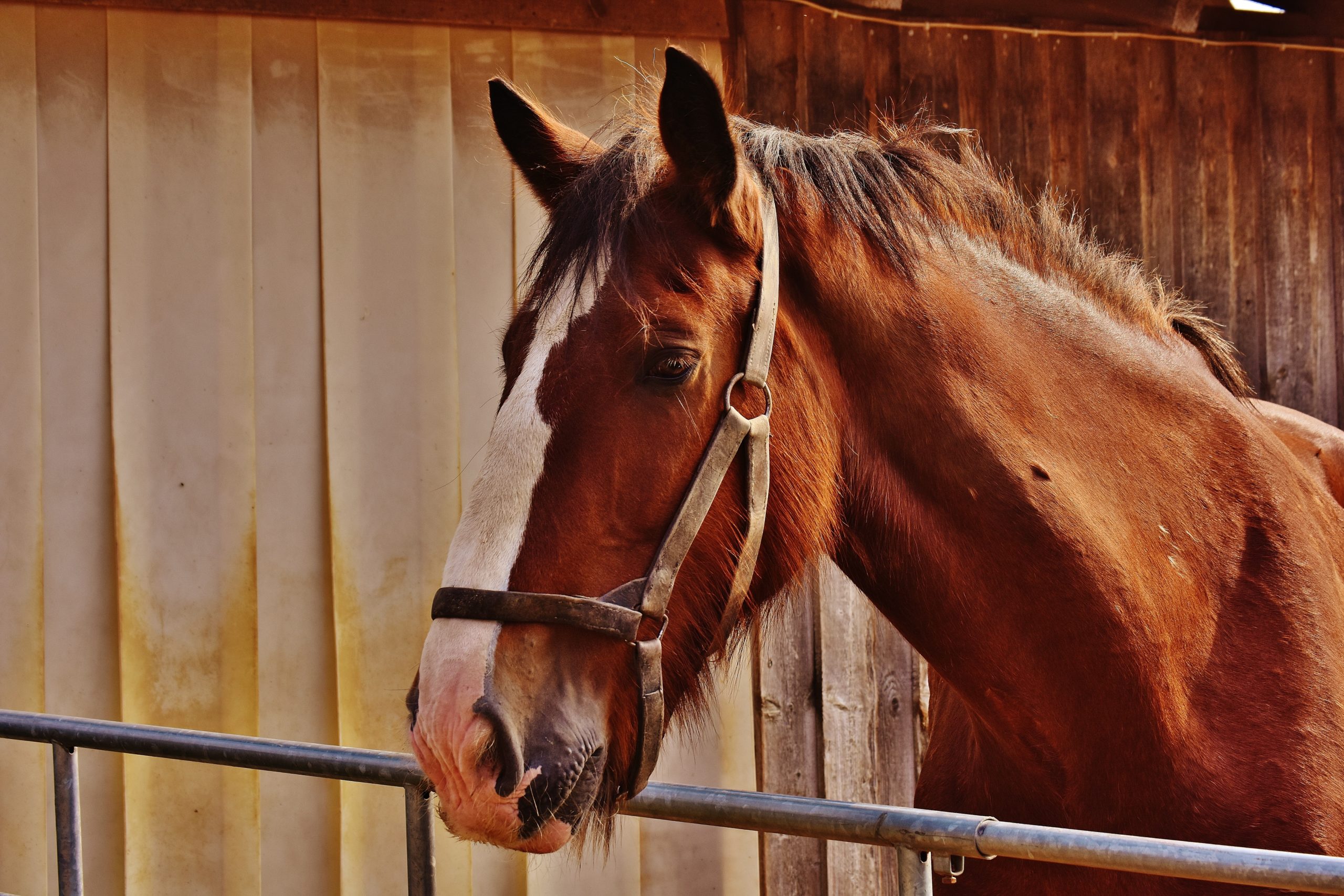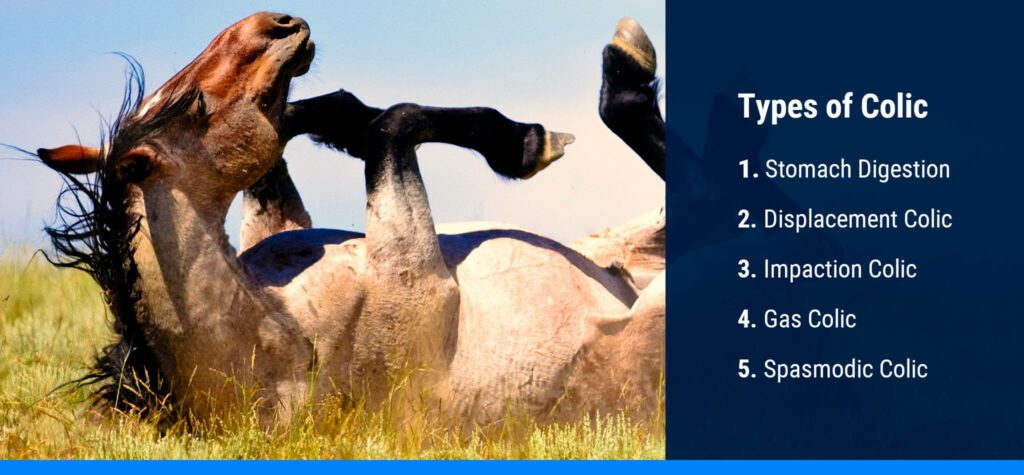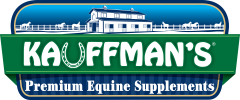Dealing With Horse Colic

Colic is a term used to describe pain in the abdomen of a horse. It usually indicates a problem in the gut or other organs found in the abdomen. In humans, abdominal pain rarely amounts to anything serious, but in horses, it can be life-threatening.
There are many different causes of colic, ranging from digestion issues to a twisted gut. Prevention is important, and by following simple pre-emptive measures, the risk of your horse getting colic can be significantly reduced.
How to Tell If a Horse Has Colic
- Apart from the general changes in behavior, a horse with colic may exhibit the following symptoms:
- Increased breathing rate and sweating
- Trying to bite the stomach
- Wanting to roll
- Regular stretching as if to ease discomfort
- Agitation and pawing at the ground
Types of Colic in Horses
There are different types of colic in horses, and they include the following:

- Stomach Distention: Horses have a small stomach capacity which makes it susceptible to distention (expansion) when large amounts of food are ingested. There can also be a risk of stomach rupture, which is fatal.
- Displacement Colic: The horse’s small intestine is suspended in the gut. When there is a lot of gas in the gut, the intestines may become subject to displacement. This movement may make the small intestine become twisted, causing pain and restricted blood flow.
- Impaction Colic: The large intestine is long and has several changes in direction. This makes it susceptible to impaction when solid masses of feed create a blockage in the intestines. Impactions are mainly caused by extremely crude feed, dehydration and accumulation of hard material like sand.
- Gas Colic: The large majority of colic cases are due to a build-up of gas in the intestine and stomach. When gas builds up, the gut expands, causing abdominal pain. Excess gas can be produced by bacteria in the gut after a horse ingests large amounts of moldy grain.
- Spasmodic Colic: Also known as painful contractions of the muscles in the intestines, spasmodic colic is similar to indigestion in humans and is usually easily treated by a veterinarian. The primary cause of spasmodic colic is believed to be over-excitement.
Treatment of Colic in Horses
To successfully treat colic, it is important to first determine its cause. The severity of symptoms in an animal is not necessarily indicative of the severity of colic. Sometimes, identifying the exact cause and correct treatment is an arduous task. As such, you need to contact a veterinarian to evaluate your horse as quickly as possible.
Most cases of colic can be successfully treated with medication, while a few cases may require immediate surgery to save the life of the horse.
How to Prevent Colic in Horses
Once you’ve successfully treated the colic, you should take precautionary measures to avoid the recurrence of the problem. For instance, if colic was caused by a diet problem, make sure to change your horse’s diet in the future.
Other preventative measures include:
- Ensuring there is a clean, fresh water supply
- Keeping feed racks as well as feedstuff clean and free of mold
- Ensuring your horse exercises adequately
- Feeding the correct amount of forage
- Keeping feed off the ground to prevent ingestion of sand or dirt
- Not making sudden changes to the horse’s diet
To learn more about how to prevent and treat colic in horses as well as a variety of other equine care tips, contact Kauffman’s today.
